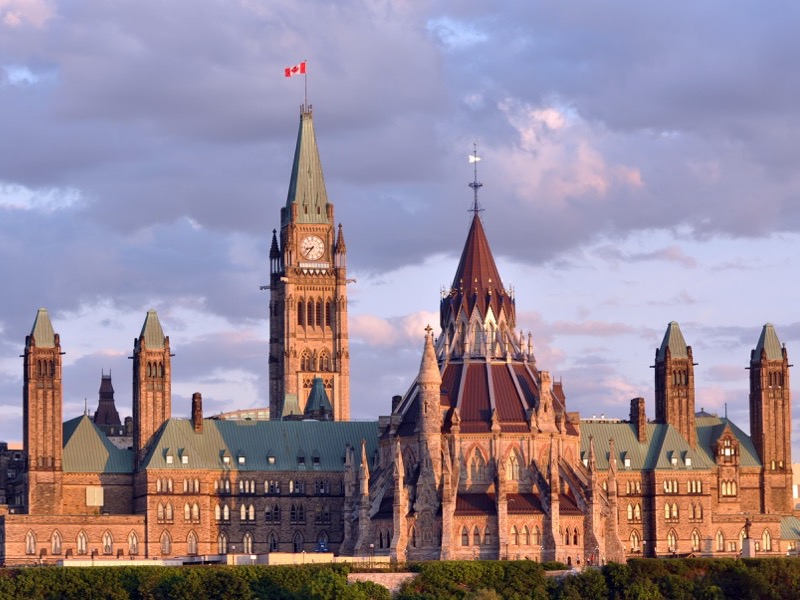
This article has been updated to reflect that expanded eligibility for the disability tax credit was addressed in draft legislation released Feb. 4.
As financial professionals anticipate the 2022 federal budget, here’s a look at the status of major tax promises and proposals still outstanding:
Outstanding from the 2018 federal budget
Proposal: Any non-resident trust that files a T3 tax return and virtually all express trusts resident in this country will have to turn over beneficial ownership information to the Canada Revenue Agency for taxation years ending on or after Dec. 31, 2021.
Status: In February, the Department of Finance released draft legislation that will be effective for trusts with taxation years that end on and after Dec. 31, 2022 — delaying the implementation by one year.
The draft legislation also extends the reporting rules to any “arrangement where a trust can reasonably be considered to act as agent for its beneficiaries with respect to all dealings in all of the trust’s property. These arrangements are generally known as ‘bare trusts.’” Tax practitioners have expressed concern that clients may have bare trusts without realizing it.
The draft legislation is out for consultation until April 5.
Outstanding from the 2019 federal budget
Proposal: Change taxation affecting ETFs and mutual funds (e.g., allocation to redeemers).
Status: Passed into law June 29, 2021, as part of the Budget Implementation Act, 2021. Mutual fund changes are retroactive to March 19, 2019. For ETFs, changes don’t apply to tax years that begin before Dec. 16, 2021, but do apply to tax years beginning after that day. The act broadened that deferral to include mutual fund trust ETFs created after Budget Day, 2019.
Specific rules for ETFs were released in February’s draft legislation, and are out for comment until April 5. The legislation includes a revised allocation to redeemers formula that requires only that the ETF know its net asset values as of the end of the current and preceding tax year; the amount that was redeemed by unitholders; and the capital gain for the entire ETF.
Outstanding 2019 election promises
Promise: Enact a luxury tax of 10% on new cars and aircraft costing more than $100,000 and on new boats costing more than $250,000. The tax would be calculated as the lesser of 20% of the value above the thresholds and 10% of the full value.
Status: Finance released draft legislation last week to implement the luxury tax, effective Sept. 1. The consultation period ends April 11.
Promise: Raise CPP survivor’s benefit by 25%.
Status: Finance Minister Chrystia Freeland was directed to implement this in her 2021 mandate letter.
Promise: Increase Canada Child Benefit (CCB) by 15% for kids younger than one year old; make EI maternity and parental benefits tax-exempt.
Status: No progress.
Promise: Double the child disability benefit.
Status: No progress.
Outstanding from the 2020 speech from the throne
Promise: Enact a new Canadian disability benefit modelled on the guaranteed income supplement.
Status: The Canada Disability Benefit was introduced in Bill C-35 on June 22, 2021, but the legislation died when Parliament rose. The mandate letter for Carla Qualtrough, Minister of Employment, Workforce Development and Disability Inclusion, directs her to “move forward with the design, introduction and implementation of a Canada Disability Benefit Act and Canada Disability Benefit for low-income working age persons with disabilities.”
Promise: Revamp the EI system.
Status: Qualtrough’s mandate letter asked her to “bring forward and begin implementing a plan to modernize the EI system for the 21st century” by summer 2022.
Promise: Permit free, automatic tax returns for simple situations.
Status: No progress.
Outstanding from the 2021 federal budget
Proposal: Impose an annual 1% tax on the value of non-resident, non-Canadian-owned residential real estate that is considered to be vacant or underused.
Status: Final details of this tax, which came into force Jan. 1, 2022, were released in the fall economic update. The legislation that would implement the tax, Bill C-8, is currently at the report stage in the House of Commons.
Proposal: Expand disability tax credit eligibility in the areas of mental functions and life-sustaining therapy.
Status: The expanded eligibility criteria appeared in the draft legislation released on Feb. 4. The comment period for this portion of the legislation closed on March 7.
Proposal: Examine raising charities’ disbursement quota, which currently is 3.5%.
Status: The consultation ended Sept. 30 and the issue was not mentioned in the finance minister’s mandate letter.
Outstanding 2021 election promises
All of the following promises were reiterated in the finance minister’s mandate letter:
- Raise the corporate income tax rate for banks and insurers to 18% from 15% on all earnings above $1 billion. These financial services institutions also would have to contribute to a Canada Recovery Dividend.
- Develop a minimum tax rule to ensure that top earners (those earning more than $216,511 in 2021) pay at least 15% per year.
- Double the Home Buyers’ Amount to $10,000 from $5,000.
- Introduce a tax-free First Home Savings Account to enable Canadians younger than 40 to save up to $40,000 toward their first home, with no taxes on contributions or withdrawals.
- Introduce an “anti-flipping tax” on residential homes, requiring property to be held for at least 12 months.
- Make the Canada Caregiver Credit refundable.
- Implement a Career Extension Tax Credit to allow working seniors older than 65 who earn at least $5,000 at their jobs to eliminate taxes payable on a portion of their income and receive a tax credit of up to $1,650.
Promise: Increase the guaranteed income supplement by $500 for single seniors and by $750 for couples, beginning at age 65.
Status: The mandate letter to Seniors Minister Kamal Khera included this directive. Khera was also asked to establish an expert panel to provide recommendations for establishing an Aging at Home Benefit, working with the Minister of Health Jean-Yves Duclos toward the goal.